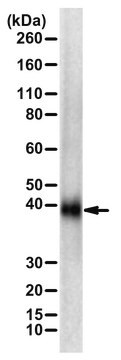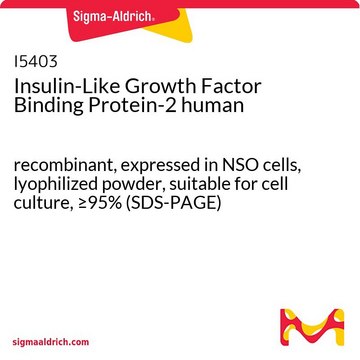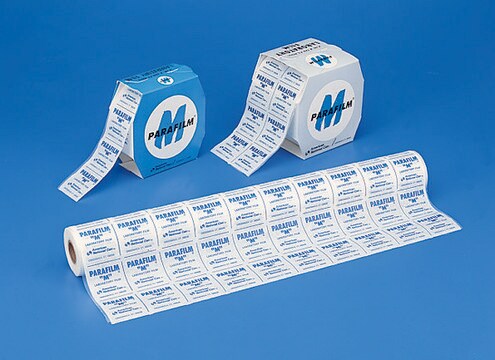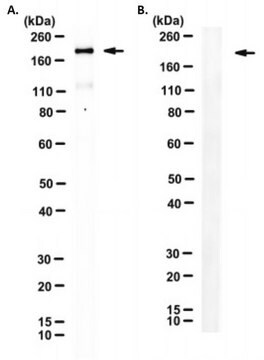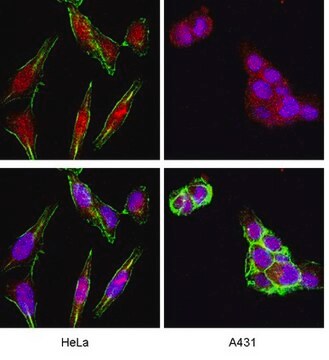MABF2783
Anti-SARS-CoV-2 Spike RBD Antibody, clone 8B12-C2
About This Item
IP
WB
immunoprecipitation (IP): suitable
western blot: suitable
Productos recomendados
biological source
mouse
Quality Level
conjugate
unconjugated
antibody form
purified antibody
antibody product type
primary antibodies, primary antibodies
clone
8B12-C2, monoclonal
mol wt
calculated mol wt 141.18 kDa
observed mol wt ~200 kDa
purified by
using protein G
species reactivity
SARS coronavirus
packaging
antibody small pack of 100 μg
technique(s)
ELISA: suitable
immunoprecipitation (IP): suitable
western blot: suitable
isotype
IgG1κ
epitope sequence
Extracellular domain
UniProt accession no.
shipped in
dry ice
target post-translational modification
unmodified
Gene Information
vaccinia virus ... NS1(956533)
General description
Specificity
Immunogen
Application
Evaluated by Western Blotting in lysate from HEK293T cells expressing full-length spike protein of SARS-CoV-2.
Western Blotting Analysis: A 1:500 dilution of this antibody detected spike glycoprotein in lysate from HEK293T expressing full-length SARS-CoV-2 spike protein, but not in lysate from wild type HEK393T cells.
Tested Applications
Western Blotting Analysis: A 1:400 dilution from a representative lot detected SARS-CoV-2 Spike protein in whole cell lysates from HEK293T cells expressing full-length spike protein of SARS-CoV-2, but not in untransfected cells. (Courtesy of Stefan Schüchner, Ingrid Mudrak, Ingrid Frohner, and E. Ogris (Max Perutz Labs, Medical University of Vienna, Austria).
ELISA Analysis: Various dilutions of a hybridoma culture supernatant for clone 8B12-C2 detected native SARS-CoV-2 spike protein. ( (Courtesy of Stefan Schüchner, Ingrid Mudrak, Ingrid Frohner, and E. Ogris (Max Perutz Labs, Medical University of Vienna, Austria).
Immunoprecipitation Analysis: A representative lot immunoprecipitated spike glycoprotein of SARS-CoV-2. (Courtesy of Stefan Schüchner, Ingrid Mudrak, Ingrid Frohner, and E. Ogris (Max Perutz Labs, Medical University of Vienna, Austria).
Note: Actual optimal working dilutions must be determined by end user as specimens, and experimental conditions may vary with the end user
Physical form
Storage and Stability
Other Notes
Disclaimer
Storage Class
12 - Non Combustible Liquids
wgk_germany
WGK 2
flash_point_f
Not applicable
flash_point_c
Not applicable
Certificados de análisis (COA)
Busque Certificados de análisis (COA) introduciendo el número de lote del producto. Los números de lote se encuentran en la etiqueta del producto después de las palabras «Lot» o «Batch»
¿Ya tiene este producto?
Encuentre la documentación para los productos que ha comprado recientemente en la Biblioteca de documentos.
Nuestro equipo de científicos tiene experiencia en todas las áreas de investigación: Ciencias de la vida, Ciencia de los materiales, Síntesis química, Cromatografía, Analítica y muchas otras.
Póngase en contacto con el Servicio técnico